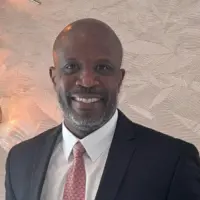About Justice Resource Institute – GRIP
Justice Resource Institute – GRIP in Lowell, Massachusetts, offers a co-ed group home that provides support to adolescents aged 16 – 22. Their mission is to assist transitional aged kids emotionally and vocationally with the goal of fostering independence as they move into adulthood. The GRIP program – Growing Responsible Independent People can help your adolescent child integrate appropriately into the community by capitalizing on their strengths and gifts.
This program uses an ARC (Attachment, Regulation and Competency) model which can be useful in teaching your child real life skills like emotional regulation, responsibility and accountability. All of these interventions come together to complement your child’s recovery from substances. The ultimate goals of GRIP are family reunification and independence. They accept a broad range of payment options such as government funding, private insurance plans and juvenile justice based funds.
What People are Saying
We feel the testimonials about the Justice Resource Institute’s GRIP program are powerful. One former resident stated GRIP changed their life and that if it were not for the GRIP program, they likely would be living on the streets. People attest that they felt genuinely cared about and that because of GRIP, they were able to complete high school, find work and secure their own apartment.
Local Attractions in Lowell, Massachusetts
We really like the location of the Justice Resource Institute – GRIP. They are located near the Lowell National Historical Park which is an amazing cultural setting that highlights the area’s industrial history. While you’re in the area, you can also consider a visit to the beautiful Merrimack River to enjoy the breathtaking views. There’s also the Shedd Park, which is a luxurious green space that’s perfect for socialization in the community and even some fun outdoor activities.
Latest Reviews
Rehab Score
Other Forms of Payment
Private insurance refers to any kind of healthcare coverage that isn't from the state or federal government. This includes individual and family plans offered by an employer or purchased from the Insurance Marketplace. Every plan will have different requirements and out of pocket costs so be sure to get the full details before you start treatment.
Self-pay involves paying for treatment out of your own pocket. You can use savings or credit, get a personal loan, or receive help from family and friends to fund your treatment. If you don't have insurance or your insurance plan doesn't cover a specific program, self-pay can help ensure you still get the care you need.
Financial aid can take many forms. Centers may have grants or scholarships available to clients who meet eligibility requirements. Programs that receive SAMHSA grants may have financial aid available for those who need treatment as well. Grants and scholarships can help you pai for treatment without having to repay.
Addiction Treatments
Levels of Care
Residential treatment programs are those that offer housing and meals in addition to substance abuse treatment. Rehab facilities that offer residential treatment allow patients to focus solely on recovery, in an environment totally separate from their lives. Some rehab centers specialize in short-term residential treatment (a few days to a week or two), while others solely provide treatment on a long-term basis (several weeks to months). Some offer both, and tailor treatment to the patient's individual requirements.
Treatments
Mental health rehabs focus on helping individuals recover from mental illnesses like bipolar disorder, clinical depression, anxiety disorders, schizophrenia, and more. Mental health professionals at these facilities are trained to understand and treat mental health issues, both in individual and group settings.
Programs
Recovery is most successful when clients feel accepted and validated by their peers and treatment providers. Facilities that offer LGBTQ-inclusive programming are committed to creating a safe space where everyone can grow and recover without fear of judgment or discrimination. They will have dedicated policies in place to create a safe and supportive environment that fosters free expression.
Young adulthood can be an exciting, yet difficult, time of transition. Individuals in their late teens to mid-20s face unique stressors related to school, jobs, families, and social circles, which can lead to a rise in substance use. Rehab centers with dedicated young adult programs will include activities and amenities that cater to this age group, with an emphasis on specialized counseling, peer socialization, and ongoing aftercare.
Clinical Services
Cognitive Behavioral Therapy (CBT) is a therapy modality that focuses on the relationship between one's thoughts, feelings, and behaviors. It is used to establish and allow for healthy responses to thoughts and feelings (instead of unhealthy responses, like using drugs or alcohol). CBT has been proven effective for recovering addicts of all kinds, and is used to strengthen a patient's own self-awareness and ability to self-regulate. CBT allows individuals to monitor their own emotional state, become more adept at communicating with others, and manage stress without needing to engage in substance abuse.
Experiential therapy is a form of therapy in which clients are encouraged to surface and work through subconscious issues by engaging in real-time experiences. Experiential therapy departs from traditional talk therapy by involving the body, and having clients engage in activities, movements, and physical and emotional expression. This can involve role-play or using props (which can include other people). Experiential therapy can help people process trauma, memories, and emotion quickly, deeply, and in a lasting fashion, leading to substantial and impactful healing.
Group therapy is any therapeutic work that happens in a group (not one-on-one). There are a number of different group therapy modalities, including support groups, experiential therapy, psycho-education, and more. Group therapy involves treatment as well as processing interaction between group members.
In individual therapy, a patient meets one-on-one with a trained psychologist or counselor. Therapy is a pivotal part of effective substance abuse treatment, as it often covers root causes of addiction, including challenges faced by the patient in their social, family, and work/school life.
Nutrition therapy, aka medical nutrition therapy (MNT), is a way of treating physical, emotional, and medical conditions through diet. Specific dietary plans are designed by professional nutritionists or registered dietitians, and patients follow them in order to positively affect their physical and mental health.
Trauma therapy addresses traumatic incidents from a client's past that are likely affecting their present-day experience. Trauma is often one of the primary triggers and potential causes of addiction, and can stem from child sexual abuse, domestic violence, having a parent with a mental illness, losing one or both parents at a young age, teenage or adult sexual assault, or any number of other factors. The purpose of trauma therapy is to allow a patient to process trauma and move through and past it, with the help of trained and compassionate mental health professionals.
Staff

Mia DeMarco, MPA
President & CEO

Kari Beserra, LMHC
COO

Bisser Dokov, MBA
CFO

Dr. Kerry-Ann Williams
Chief Medical Officer

Roody Herold, MBA, MAUML
CIO

Jennifer Miguel, LICSW
Executive VP

Mark Schueppert, Esq
Senior VP & General Counsel

Robert S. Gervais
VP of Operations
Contact Information
319 Wilder street
Lowell, MA 01851